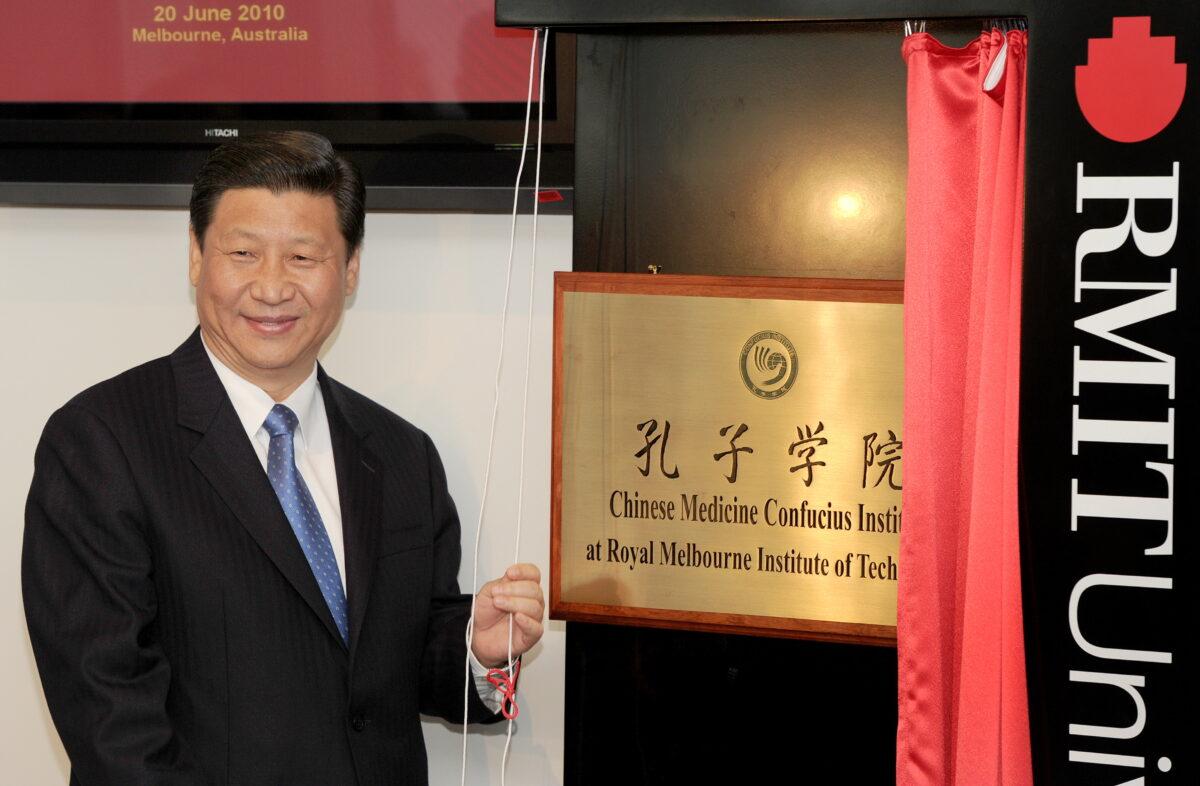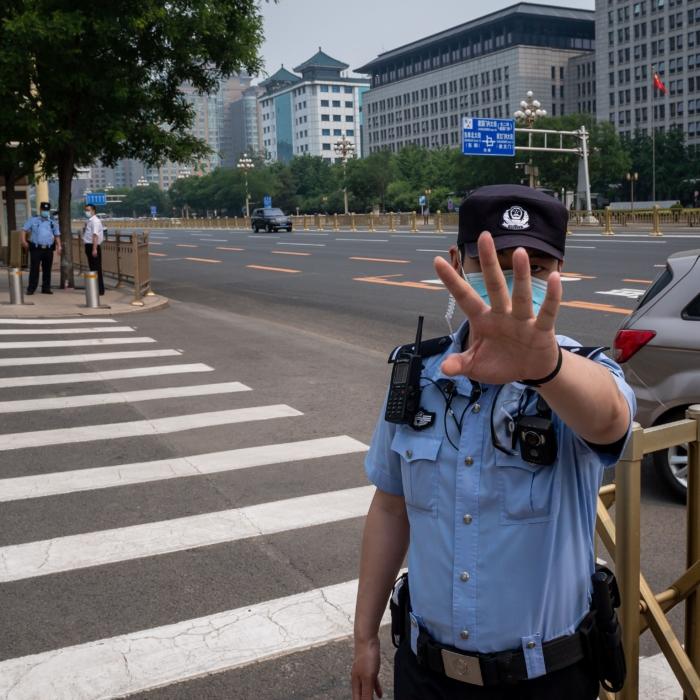British students should turn to Taiwan for Mandarin education, but that alone is not enough to protect them from Beijing’s influence, according to some China experts.
Lawrence Alexander Farley, also known as Lele Farley, who recently observed the general election in Taiwan, told The Epoch Times many Taiwanese youth are “astoundingly ignorant” towards the Chinese Communist Party (CCP) and its influence campaigns.
CCP Doublespeak
“If you‘d asked me two months ago, I would have said, ’definitely go to Taiwan.' But this Taiwan election cycle made me realise that the Taiwanese, especially the young Taiwanese, don’t understand anything about the Chinese Communist Party,” said Mr. Farley.He said while Taiwan is “probably the best place” to study Chinese politics, “a lot of the Taiwanese youth” has no idea how the CCP use online forums and video platforms to manipulate public opinion in the self-ruled island.
According to Mr. Farley, learning Mandarin is “essential,” but “if you’re in Taiwan, and you’re not directly focused on the Communist Party of China, and you’re just kind of going through the people, you might not learn that much about it.”
“If you don’t know Chinese, and you’re not familiar with ... the Communist Party jargon, you are very much susceptible to being taken advantage of,” he said.
The assessment was echoed by Zhang Pu, writer, novelist, and the Chinese translator of his sister Jung Chang’s award-winning autobiography “Wild Swans: Three Daughters of China.”
“You can learn Mandarin and Chinese history from Taiwan, but if you'd like to understand the reality in China, it’s not necessarily accurate. It’s hard to say,” he said.
Mr. Zhang said the key is to look for teachers or books that are free from CCP influence.
Mr. Zhang said the UK government, including the intelligence agencies, need to find people who have deep understandings about China and Chinese culture that are independently formed, to avoid misunderstandings and miscalculations.
He believes civil servants can be sent to both Taiwan and the mainland as long as suitable candidates are selected, but Taiwan is better for studying the language and the culture.
Sam Dunning, director of UK–China Transparency (UKCT), said he believes Taiwan knows some things about the People’s Republic of China (PRC) “in a way that the PRC might not know about itself because the atmosphere for discussion is not as free in the PRC.”

Difference Between China and Taiwan
Asked about the difference between Chinese and Taiwanese citizenship, Mr. Farley said there’s a “huge difference.”“The Taiwanese speak about politics openly. And Chinese people, even if they’re abroad, if you bring up politics, it’s scary. They look around behind their backs, and they’re like, ‘Hey, are we sure we can talk about this?’ It’s extremely different.”
However, despite the CCP jargon, Mr. Farley said it appears young people who went to China to study are still not very likely to become a “foreign 50-cent army,” referencing non-Chinese pro-CCP trolls in social media.
Asked how young people can resist CCP propaganda, Mr. Farley said, “Don’t be a greedy piece of [expletive].”
“What can the population do? Educate yourselves on the ways that authoritarian regimes do propaganda, which is always whataboutism, it’s information asymmetry, and all that stuff,” he said, adding that Western education systems are not equipping young people with the tools to resist communism.
“The education system not only doesn’t do a good job of educating the youths on communism, I think they do the opposite. I think they might help these kids think that maybe communism is a good idea,” he said.
Ian Oxnevad, senior fellow for foreign affairs and security studies at the National Association of Scholars, also said while “fascist regimes” do get talked about in lectures, “a lot of communist regimes get a pass.”
Security and Safety Risks
Mr. Oxnevad said he doesn’t believe going to China to fill the UK’s knowledge gap is worth the risk.“For the education section, you really don’t need China,” he said, pointing to national security risks with scientific collaborations and alternative partners in Asia.
To know about the CCP, Mr. Oxnevad said: “People study totalitarian authoritarian regimes all the time. They don’t have to live there to experience it to know, necessarily, how awful it is.”
However, it’s highly unlikely that the UK will be completely cut-off from China.
The UK government has maintained it needs to collaborate with the Chinese regime on issues such as net zero and artificial intelligence.
According to the British Council, over 67,000 British students have studied in China since 2013.
Mr. Dunning told The Epoch Times he believes “some degree of exchange is inevitable and necessary,” but “there does need to be more transparency and honesty about the risks facing young people” who go to China from the UK.
Commenting on the story, Mr. Dunning said, “A lot of the institutions that facilitate these exchanges are incentivised not to be honest about the risks, and I don’t think that’s acceptable.”
The Varsity article did not name the organisations that facilitated the exchange. The Epoch Times has not been able to independently verify the information.

Limited Demand
Mr. Dunning also said he believes Mandarin speaking countries other than China may well be enough to satisfy the UK’s needs for Mandarin teaching.The number of civil servants who require Mandarin training “are likely to remain small enough,” he said.
As for school pupils who take Mandarin classes, Mr. Dunning said he believes “the vast majority” of them do not become fluent or achieve “any useful level of language acquisition.”
“If the argument is we need Confucius Institutes to teach Chinese, well, are they doing that? Are they doing that effectively?” he said, arguing that supporters of the institutes should produce the figures to prove their efficacy.
Confucius Institutes are teaching centres hosted by Chinese and non-Chinese partners, with the stated aim of promoting the Chinese language and culture.
Chinese Culture vs. CCP Culture
Speaking of Chinese culture, Mr. Zhang said Western missionaries who travelled to China in the past 300 years have written many “excellent” books thanks to their deep understanding of the culture.But now the culture is preserved much better in Taiwan because of the CCP’s Cultural Revolution and other political campaigns in the mainland, he said.
Asked what the UK can do to boost students’ interest in Chinese culture, Mr. Oxnevad said he believes “the only way out of that is to instil genuine curiosity,” which requires “a sort of a classical humanism.”
“Why wouldn’t you want to learn Mandarin if you could access a whole civilization?” he said, adding that his education in Arabic language “opens up a whole new world” for him.







